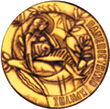Dan Milon
My name is Dan and problem solving is my thing. I use my cognitive skills in order to solve a given problem with the rest of my team. I despise no-brainer work and repetition. Ultimately, I believe in cooperation and being able to provide concrete solutions, rather than technical specialization on specific software. The latter everyone can aquire sooner or later, but not the former.
Experience
 Platform.sh (remote)
Platform.sh (remote)
Software Engineer • Jul, 2016 — Present (remote)
Platform.sh is a leading PaaS product, with innovative features that are backed by a technologically advanced backend infrastructure. At Platform I'm working with the core engineering team, designing and improving upon the orchestration layer responsible for handling the lifecycle of tens of thousands of containers which comprise user's application environments.
 Lexiful (remote)
Lexiful (remote)
Senior Software Engineer • Feb, 2014 — Jun, 2015 (remote)
At Lexiful we built from scratch a platform that coordinated translation work in an automated fashion. Documents to be translated are uploaded by customers and are then routed, using machine learning algorithms, through translators of different expertise and rate, in a way that achieves the lowest cost for the target deadline and quality of work. Translation Manager as a Service, so to speak.
 Photiq (remote)
Photiq (remote)
Software Engineer • Jul, 2013 — Jan, 2014 (remote)
At Photiq we built a platform for small shop owners to easily sell their products online. I designed the backend infrastructure and implemented the API from zero to launch. Every part of the stack was engineered to be linearly scalable and highly available.
 SlideMe (remote)
SlideMe (remote)
Analytics Engineer • Jun, 2012 — May 2013 (remote)
Designed and implemented the analytics platform that is being used by mobile application developers for SlideMe, the biggest unofficial Android app store.
Education
 University of Crete
University of Crete
Bachelor degree in Computer Science • 2008 — 2013
The curriculum at UoC is heavily sided towards developing a problem solving & software architecture skillset, rather than teaching a myriad of programming languages. Of course, to achieve that, deep understanding of low-level systems understanding is essential (e.g. memory management, compilers, etc).
The 1st software engineering university in Greece and 145th out of the top 400 universities in the world (as ranked by the Times Higher Education).
Projects
Flying Icarus
Flying Icarus, a side project of mine, is a flight monitoring platform similar to flightradar24.com. As an aviation enthusiast, I saw great value in a flight monitoring platform built and supported entirely by the aviation community, end to end. From the collection of ADS-B signals through antennas over people's rooftops to processing and the visualization.
Every component of the whole system is open sourced, including the Kubernetes infrastructure.
Notably, the drawing of the planes on the map is performed via WebGL instanced objects (through low-level Three.JS APIs), with custom vertex shaders, and is able to draw thousands of objects with high frame rates, even on low performance devices.
Node.js Contributions
I started with node in the early days of v0.2 or so, was active in the community and became proficient on it while working at Photiq. I even contributed a minor bug fix.
Passbookster - iOS Passbook Library for Node
While working at Photiq we wanted to make use of Passbook in iOS, in order to serve receipts to customers. At the time no library existed for it, so I wrote one which used OpenSSL underneath and open sourced it. Since then many companies have used it to integrate node with Passbook.
Assurance - Input Validation Library for Node
I was getting fed up with all the validation libraries for node at the time, and decided to build a new one. The goal was to allow easy validation for common use cases, but also be flexible for custom validation. No form input or any other integration. Just do one thing and do it well.
node-openex - Web API Client for openexchangerates.org
Wanted to get live currency rates for a side project and there wasn't any library available for node to do that. Went on and wrote an open source client for the openexchangerates.org API for node.
Skills
Problem Solving
Define a problem, divide in sub-problems, generate multiple solutions, evaluate and decide, design ultimate solution, implement.
Technical Skills
This is a list of software or platforms I've used extensively for side projects or prior work, but generally I am swift at picking up new technology and understanding the underlying mechanisms and philosophy.
- Programming & Libraries
- Expert in Python (incl. v3+) / Flask / Pyramid / SQLAlchemy
- Proficient in Node.JS
- Fluent in Java (incl. Java 8)
- Familiar with Erlang/Elixir
- Familiar with Ruby/RoR
- Databases
- PostgreSQL
- MongoDB
- ElasticSearch
- DevOps
- Linux
- AWS platform (EC2, RDS, S3, Route53, OpsWorks, IAM, SES)